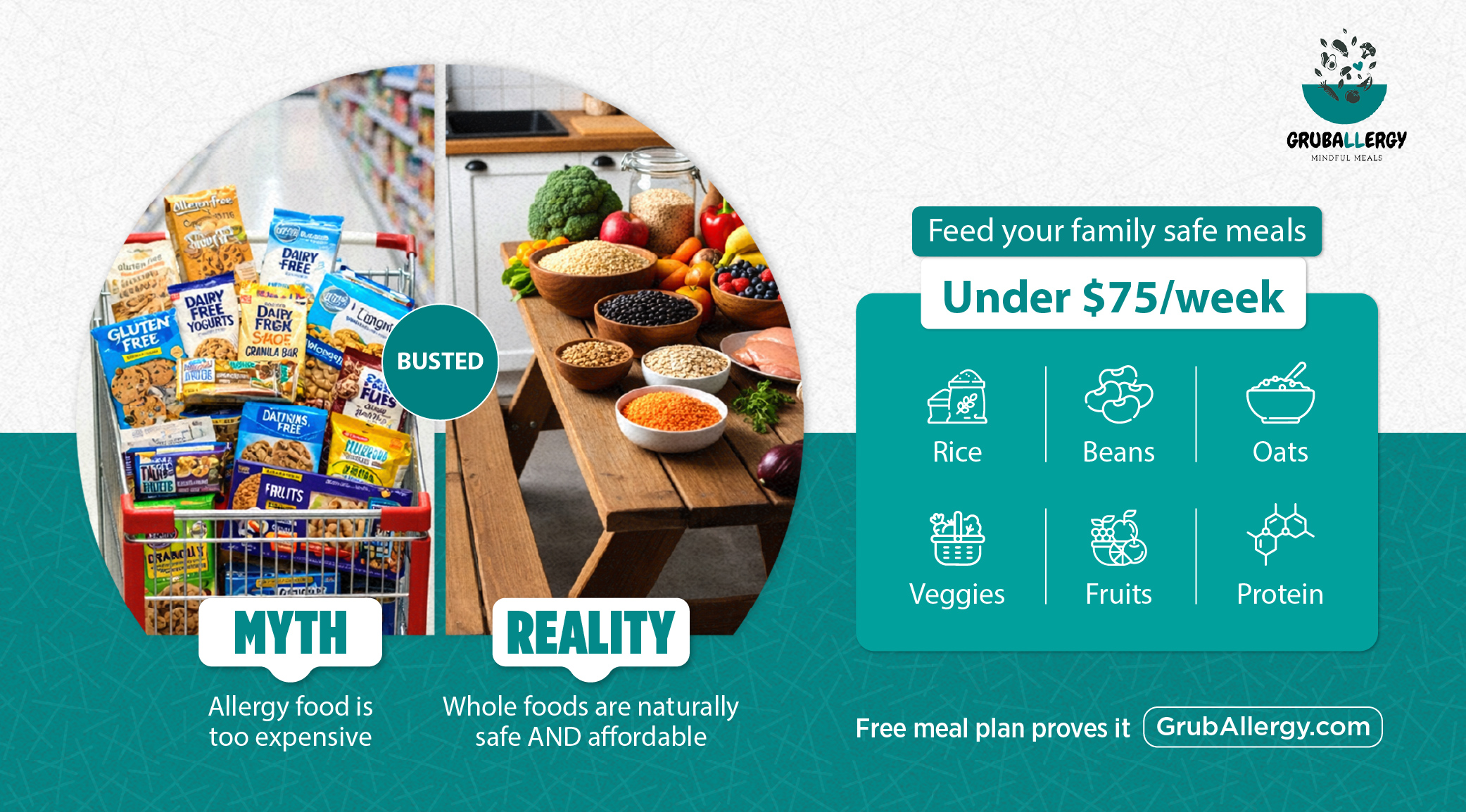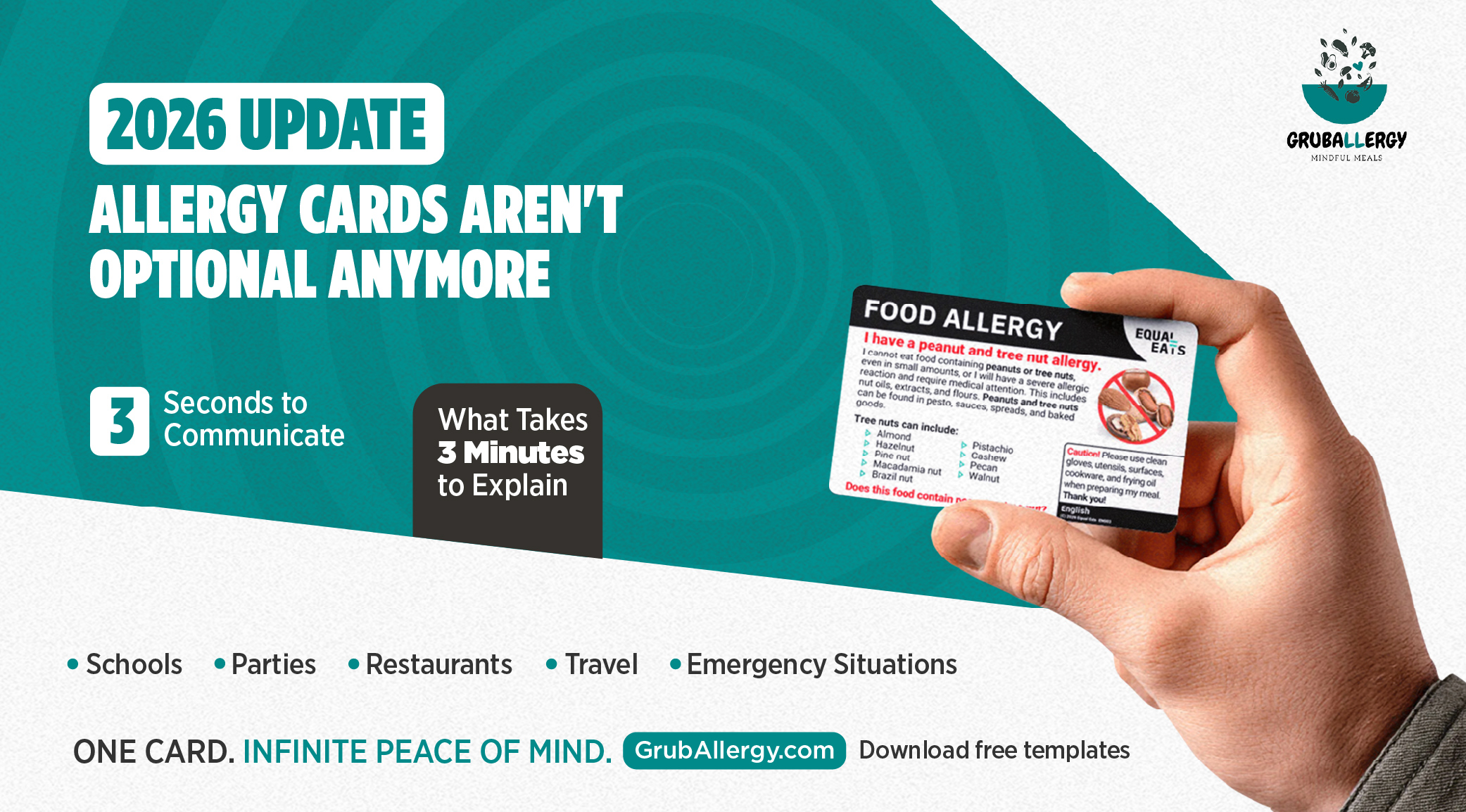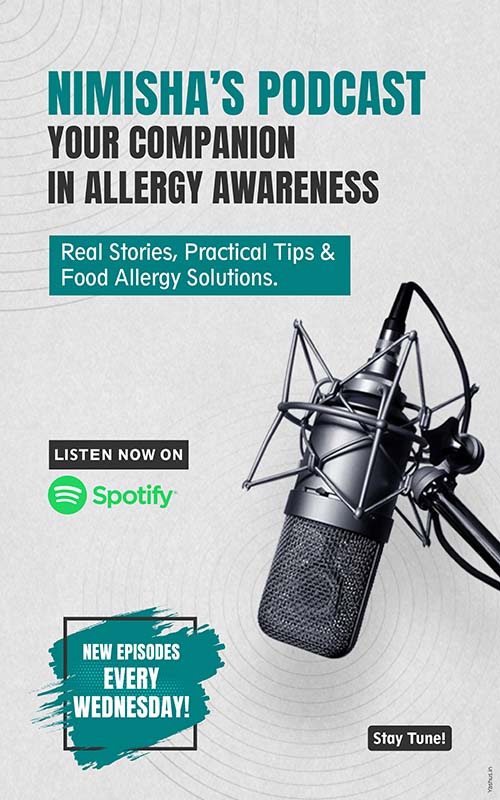.png)
Transitioning into early adulthood comes with a host of new responsibilities: managing finances, pursuing higher education or careers, and, for many, cooking independently for the first time. For young adults with food allergies, this period marks a significant turning point. No longer relying on parents or school systems to monitor food safety, they must now take full responsibility for their dietary needs. Successfully managing food allergies while learning to cook independently requires knowledge, vigilance, and the development of practical skills.
Understanding Your Allergies
The first step in managing food allergies is gaining a thorough understanding of the allergens involved. Whether the allergy is to peanuts, shellfish, dairy, or another common trigger, individuals must learn to identify the many forms and names that allergens can take on ingredient labels. For instance, a dairy allergy doesn't just mean avoiding milk it includes understanding hidden sources like casein, whey, and lactose. This knowledge empowers young adults to make informed choices while shopping and eating out.
Reading Labels and Avoiding Cross-Contamination
Cooking at home offers greater control over food preparation, but it also introduces new challenges, particularly for those unfamiliar with label reading or kitchen hygiene. Ingredient labels must be read carefully every time, as manufacturers can change recipes without warning. Additionally, cross-contamination when allergens are transferred from one food to another can be a serious risk. Using separate utensils, cleaning surfaces thoroughly, and storing allergen-free foods properly are critical precautions.
Learning to Cook Allergen-Free Meals
For many, early adulthood is the first time they prepare meals regularly. This provides an opportunity to explore allergen-free cooking and establish a diet that is both safe and enjoyable. The internet is rich with allergy-friendly recipes, and there are numerous cookbooks tailored to specific dietary restrictions. Planning meals ahead and preparing food in batches can save time and reduce the temptation to eat out, where allergy risks may be higher.
Advocacy and Communication
Navigating social situations such as shared kitchens, roommates, and group meals presents additional challenges. Effective communication is essential. Young adults must feel confident asserting their dietary needs to roommates, friends, or restaurant staff. Explaining the severity of their allergies and how cross-contact can pose health risks helps foster understanding and cooperation. Wearing a medical alert bracelet and carrying an epinephrine auto-injector (if prescribed) are also important safety measures.
Building Confidence and Independence
Managing food allergies in early adulthood can feel overwhelming at first, but it also offers the chance to build independence and resilience. Over time, young adults learn to navigate grocery stores with ease, master allergen-free recipes, and create routines that prioritize their health. With the right tools and mindset, what initially seems like a burden can become a foundation for lifelong wellness and self-sufficiency.
Conclusion
Early adulthood is a time of growth, exploration, and new responsibilities. For individuals with food allergies, learning to cook and manage their diet independently is a crucial part of this journey. With careful planning, continued education, and strong communication, young adults can not only protect their health but also develop a confident and empowered approach to living with food allergies.
FAQ

You may also like
Leave a Reply

Get a free consultation with GrubAllergy.
Share your child's food allergy history, and let us guide you with expert advice on managing and navigating food allergies with confidence.



.png)







